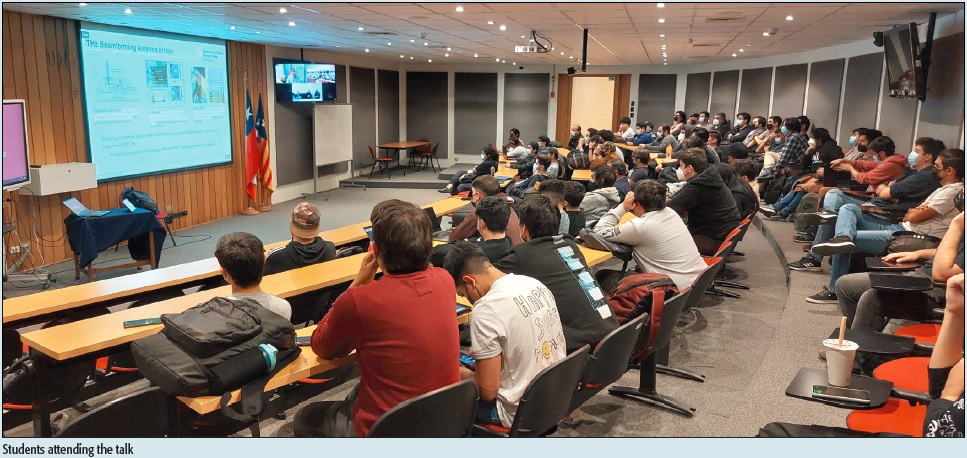
During the first days of May 2022, Dr. Josep Miquel Jornet, from Northeastern University, USA, presented a talk on Terahertz Communications for 6G. He is an enthusiast and dedicated researcher, who shared with us his broad knowledge and experience on wireless communications. At the beginning of the talk, he covered basic propagation theory and provided an overview of the current battle for bandwidth availability in a wireless world. He further introduced the new electronic, fotonic and plasmonic technologies which are the main enablers to open the terahertz spectrum for commercial communications devices. The last step in his presentation was to explain the open problems and applications: plasmonic-based ultra massive MIMO for transmission, reflection and reception, new modulations, new receiver-managed medium access protocols and routing algorithms adapted to terabit speed links.
At IEEE ComSoc Chile Centro Chapter, we are grateful for his clear and interesting presentation, which captured the attention of the public, composed of almost 70 Informatics and Telecommunications students, professionals and academics.
Since the beginning of the COVID-19 pandemic we switched to the virtual meetings, while during the first months of 2022, we started to come back to face-to-face mode. During this transition, at IEEE ComSoc Chile Centro Chapter we took advantage of the hybrid meeting rooms available at different Universities.
In this opportunity, we joined a hybrid meeting room from the Engineering Faculty of Pontificia Universidad Católica de Valparaíso and the auditorium from the Engineering and Sciences Faculty of Universidad Diego Portales, also with hybrid capabilities. Consequently, we had a remote Distinguished Lecturer presenting to participants located in different institutions. IEEE ComSoc Chile Centro Chapter covers a wide territory and we are convinced we can do better to expand this experience to an increasing number of universities. Moreover, we believe this kind of configuration can contribute to IEEE ComSoc efforts in other chapters to boost participation by providing wider simultaneous coverage while making efficient use of IEEE ComSoc resources.